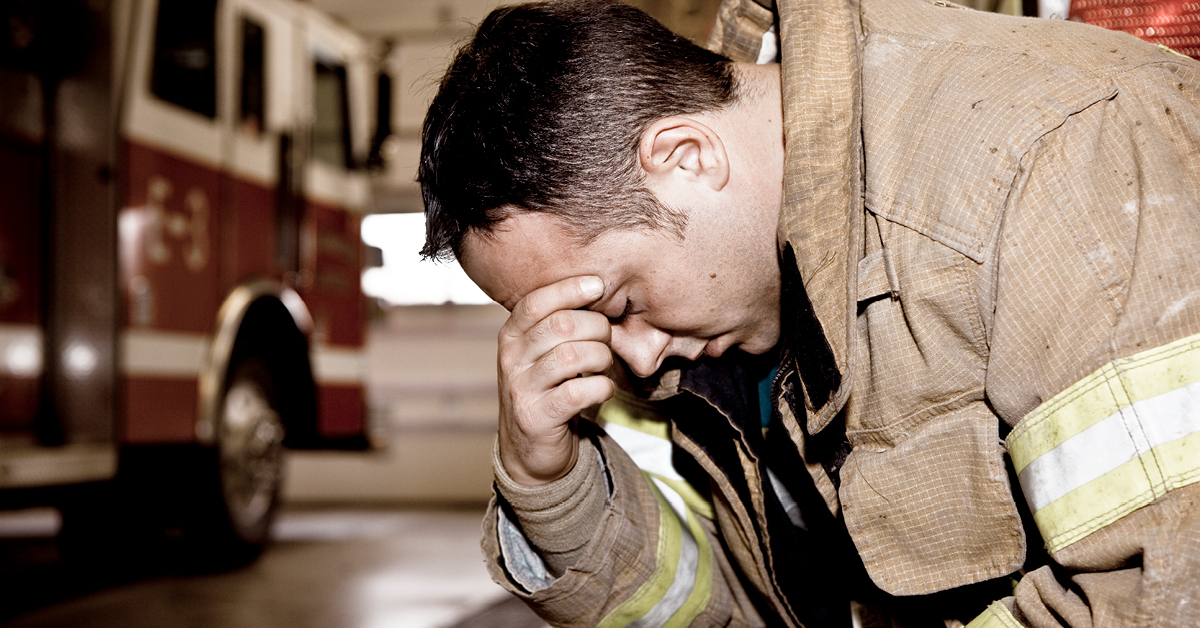How the Pandemic is Affecting First Responders' Mental Health

Prior to the COVID-19 pandemic, first responders—including EMS and Fire personnel—were already facing a disproportionately high number of mental health issues and substance use disorders due to the traumatic nature of their jobs. According to The Substance Abuse and Mental Health Services Administration (SAMHSA), roughly 30% of first responders develop behavioral health conditions including depression and posttraumatic stress disorder (PTSD), compared with 20% of the general population. Additionally, according to The Centers for Disease Control and Prevention (CDC), policemen and firefighters are more likely to die by suicide than in the line of duty and EMS providers are 1.39 times more likely to die by suicide than the general public.
There are many work-related factors attributing to these jarring statistics. Here are some examples SAMHSA notes:
- Exposure (direct or indirect) to death, grief, injury, pain, or loss
- Direct exposure to threats to personal safety
- Frequent shifts and longer shift hours
- Poor sleep
- Physical hardships
The introduction of the COVID-19 pandemic compounded this long list of factors, causing an increase in mental health issues for first responders. According to a recent study from the Cognitive Behavioral Therapy journal, first responders exposed to COVID-19 reported higher alcohol use and those who were medically vulnerable or worried about COVID-19 reported more severe symptoms of anxiety, depression, and PTSD symptoms as compared to the general public.
It poses the question: With mental health issues and substance use disorders on the rise in first responders, what can be done to improve first responders’ health and what resources are available to help?
The answer is certainly complex, but a few ways to get started include:
- Providing first responders with tools for well-being.
Empower your employees to take charge of their whole health, both physical and mental. The National Alliance on Mental Illness (NAMI) provides some helpful tips here, the CDC provides many tools and suggestions on their website, and the Code Green Campaign has compiled a very comprehensive list of COVID-19 specific mental health resources.
- Finding ways to reduce the stigma around mental illness.
The American Psychiatric Association (APA) notes that one of the most effective ways to reduce the stigma surrounding mental illness is simply to start having conversations: “Research shows that knowing or having contact with someone with mental illness is one of the best ways to reduce stigma. Individuals speaking out and sharing their stories can have a positive impact. When we know someone with mental illness, it becomes less scary and more real and relatable.” Review all the suggestions from the APA here.
- Incorporating mental health curriculum into first responder training.
Whether during initial training, continuing education, or on demand, educating first responders on the importance of mental health on a regular basis can go a long way in creating positive change in the first responder community. There are a handful of mental health resources tailored to the first responder community. The SAMHSA provides some of those resources here. The Public Safety Group also offers First Responder Support & Resilience, evidence-based, interactive simulations that enable students and experienced professionals to practice talking with other first responders who are going through challenging times. You can preview this unique learning experience here.
